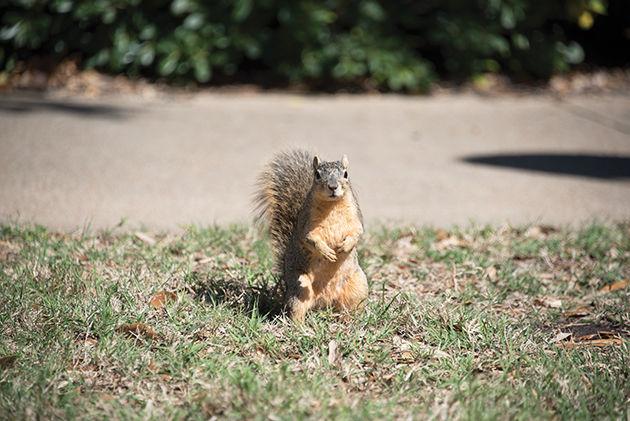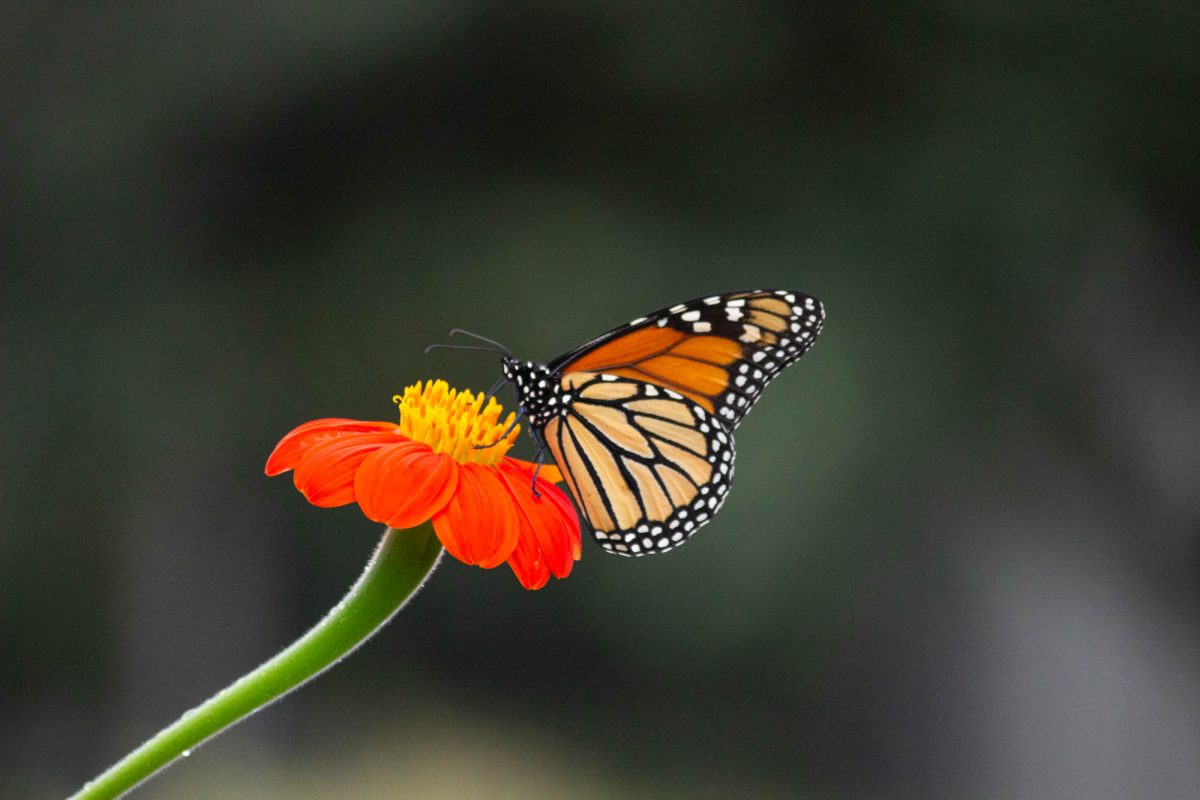Campus squirrels, bats and skunks inhabit the bushes and trees of Texas A&M’s campus and are often noticed by students. Studies in mental health and wildlife suggest that being around animals can boost hormones like serotonin and relieve anxiety. Being no stranger to mental distress, college students can greatly benefit from nature.
Squirrels that inhabit trees across campus most excite psychology sophomore Nora Dolt.
“I think every day is better with a squirrel in it than without a squirrel,” Dolt said. “I feel happy when I see squirrels running around with their acorns. It would be better if they came closer than just run away.”
A 2023 Gallup study found that college students experience high levels of worry and stress on a daily basis. On average, 66% of the students surveyed experienced stress throughout their day, while 51% indicated worry.
Forensic science freshman Jacklynn Escobar believes campus squirrels provide a mental escape to students from their academics.
“Say you just walked out of an exam and you flopped it, seeing little squirrels running around and chasing each other makes you laugh a little bit,” Escobar said. “I would interact with a squirrel, but they usually run away.”
Clinical associate professor of veterinary pathobiology Walter Cook says wildlife can threaten health, despite their approachable demeanor.
“All mammals are susceptible to rabies and other diseases like tularemia, leptospirosis and ringworm,” Cook said. “In all of these diseases, you would have to be in close contact with the animal. Enjoy and watch animals from a distance and you won’t have to worry about these diseases.”
In nocturnal animals, it is easier to detect diseases like rabies by observing abnormal behavior.
“A skunk’s natural behavior is to be out during dawn, dusk and night so you would not expect to see them out during the day,” Cook said. “If skunks are out during the day, there is a higher chance that they are carrying rabies.”
Pre-veterinary zoology sophomore Aiden Gomez views campus wildlife with more caution.
“I’ve never had a squirrel attack me, but they look like they’d attack me,” Gomez said. “The squirrels here on campus are not as domesticated as other campus squirrels.”
Due to their potential danger and appearance in campus buildings, bats cause concern in both Gomez and Escobar.
“Bats will give you rabies,” Gomez said. “I know there was a bat at Evans Library last semester, and a student caught it with their jacket.”
In contrast to their acorn-eating counterparts, the nocturnal nature of skunks and bats makes them less susceptible to human encounters.
“I would be both scared and excited to see a bat,” Escobar said. “I know that if we see a bat around campus, we are supposed to report it.”
Escobar also seeks to avoid any interactions with skunks.
“Skunks would not excite me,” Escobar said. “I would be scared that they would spray me.”
While many would choose to stay away from skunks and bats, Dolt would be delighted to encounter them.
“I want to see some,” Dolt said. “I would interact with them but take precautions.”
Proper precautions must be taken during wildlife encounters. Cook said knowledge and cautionary measures are important for safety.
“The main precautions are to enjoy wildlife from a distance, don’t approach animals and don’t feed them,” Cook said. “A lot of people are tempted to feed wildlife; they think they’re helping them out, but in actuality they’re getting the animal addicted to human food and encouraging them to approach people.”
Despite the risk of disease, Cook enjoys the beauty of wildlife and encourages students to appreciate it.
“I don’t have any fear of wild animals,” Cook said. “I know that if I behave properly, they are not going to bother me. There is a lot of research that shows that enjoying nature has tremendous mental and physical health benefits. Wildlife is good for our health.”













